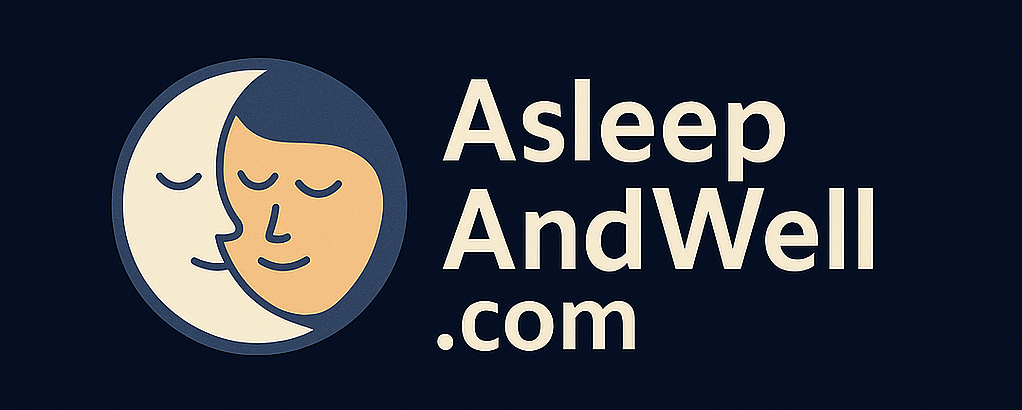📘 Sleep Dictionary – Simple Explanations for Sleep Terms
Trying to understand sleep advice but stuck on the lingo? You’re not alone. From REM sleep to sleep latency, the world of sleep is full of terms that can sound more clinical than calming.
This plain-English sleep dictionary breaks down over 40 of the most common (and commonly misunderstood) sleep terms – no jargon, just clear explanations. Whether you’re a night owl trying to fall asleep earlier, or simply curious what “sleep efficiency” really means, you’ll find it here.
This page will continue to be updated with new words and definitions over time. If you have any suggestions for additions, feel free to get in touch.
💤 Sleep Terms & Definitions (A–Z)
| Term | Definition |
| Actigraphy | A method of monitoring sleep patterns using a wearable device that tracks movement. |
| Blue Light | Light emitted from screens and LEDs that can suppress melatonin and disrupt sleep. |
| CBT-I | Cognitive Behavioral Therapy for Insomnia — a structured, effective treatment for chronic sleep issues. |
| Chronotype | Your natural tendency to feel alert or sleepy at certain times of the day. |
| Circadian Rhythm | The 24-hour internal clock that regulates sleep-wake cycles and many other bodily functions. |
| Core Body Temperature | A factor that drops at night to help signal the body it’s time to sleep. |
| Deep Sleep | The most restorative phase of sleep, also known as slow-wave sleep. |
| Delayed Sleep Phase | A condition where a person’s sleep is significantly delayed compared to normal bedtime. |
| Dream Rebound | The intensification of dreams following sleep deprivation. |
| Early Bird | A person whose natural rhythm leads them to wake early and function best in the morning. |
| Fragmented Sleep | Repeated interruptions during the night that break up natural sleep cycles. |
| Hypersomnia | A condition characterized by excessive daytime sleepiness. |
| Hypnic Jerk | A sudden muscle twitch that occurs as you’re falling asleep. |
| Hypnagogic State | The transitional state between wakefulness and sleep. |
| Insomnia | Difficulty falling asleep, staying asleep, or waking too early. |
| Jet Lag | A temporary sleep disorder from traveling across time zones, disrupting circadian rhythm. |
| Light Sleep | A lighter stage of sleep where you can be awakened more easily. |
| Lucid Dreaming | A state where you are aware that you’re dreaming and may be able to control the dream. |
| Melatonin | A hormone produced by the brain in response to darkness, helping to regulate sleep. |
| Microsleep | Very short episodes of sleep that occur when you’re extremely tired. |
| Nap | A short sleep taken during the day to restore alertness and energy. |
| Night Owl | A person who naturally prefers staying up late and waking later. |
| Night Terrors | Episodes of screaming or intense fear during sleep, more common in children. |
| Nocturia | Frequent urination during the night, which can interrupt sleep. |
| Obstructive Sleep Apnea | A sleep disorder where the airway becomes blocked, causing breathing to stop and start. |
| Parasomnia | Abnormal behaviours during sleep such as sleepwalking or talking. |
| Polysomnography | A comprehensive sleep study used to diagnose sleep disorders. |
| REM Sleep | Rapid Eye Movement sleep, where most vivid dreaming occurs. |
| Restless Legs Syndrome | A condition that causes an uncontrollable urge to move the legs at night. |
| Sleep Architecture | The structure and pattern of sleep stages across the night. |
| Sleep Debt | The cumulative effect of not getting enough sleep. |
| Sleep Efficiency | The percentage of time spent asleep while in bed. |
| Sleep Hygiene | Healthy habits that promote good sleep, like limiting screens and caffeine. |
| Sleep Inertia | The groggy feeling after waking, especially from deep sleep. |
| Sleep Latency | The amount of time it takes to fall asleep. |
| Sleep Paralysis | A temporary inability to move or speak when falling asleep or waking. |
| Sleep Regression | A phase when a child’s sleep suddenly worsens, often due to development. |
| Sleep Spindle | A burst of brain activity during light sleep thought to aid memory. |
| Social Jet Lag | The mismatch between your biological clock and your social schedule. |
| Suprachiasmatic Nucleus | A group of brain cells that act as the body’s master clock. |
| Wake After Sleep Onset | Periods of wakefulness occurring after initially falling asleep. |
🤔 Still Unsure What It All Means?
If a term still doesn’t make sense – or you’re just feeling stuck in your sleep routine – don’t worry. Most people aren’t taught how sleep works. As is becoming increasingly apparent, just because its necessary, doesn’t mean its straightforward!
👉 Explore our Sleep Tips section for calm, actionable advice. Or jump to a topic that feels most relevant to your nights.
👉 Or why not explore our Sleep Hub, the home of all of our issues, tips and product round-ups.
